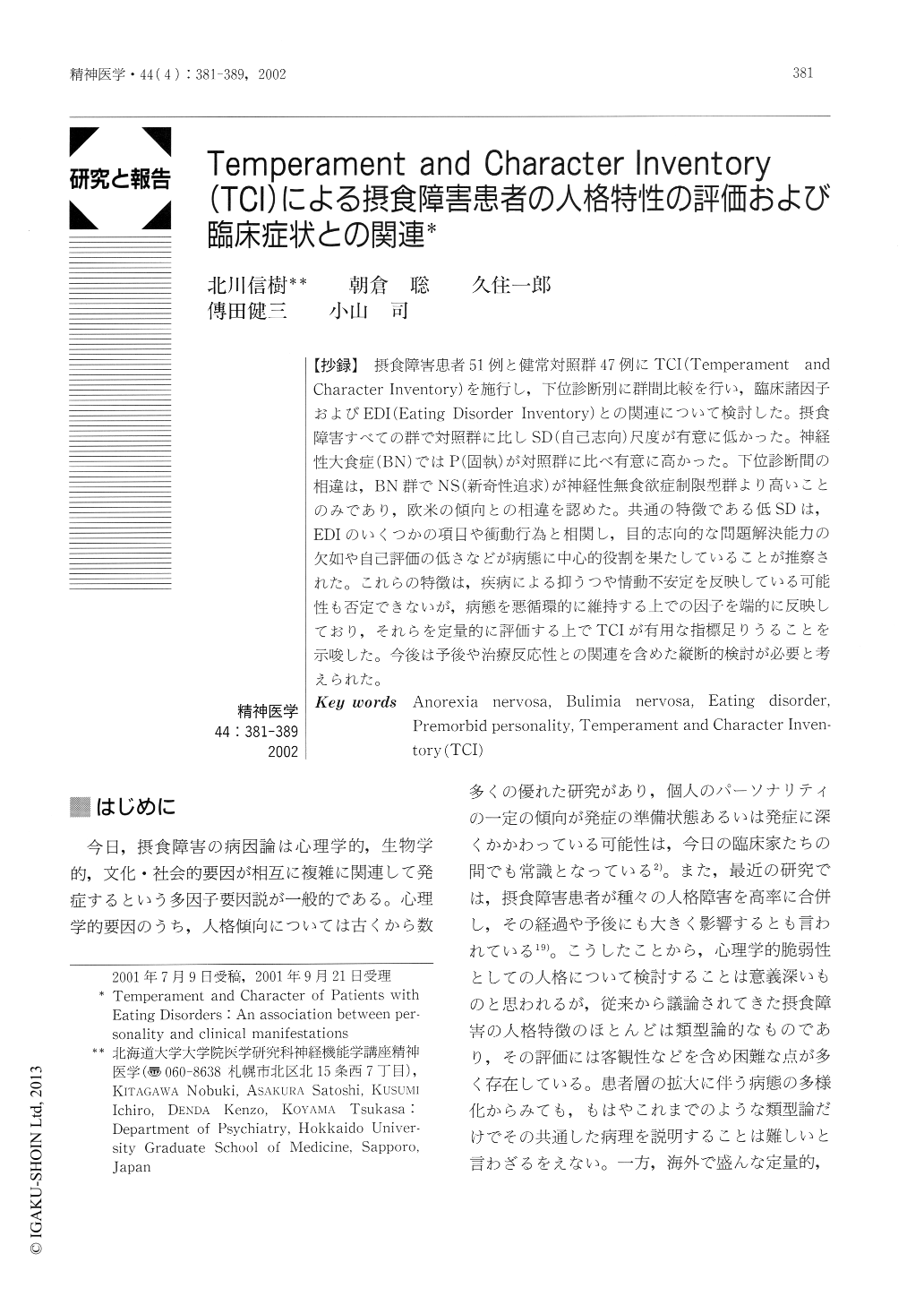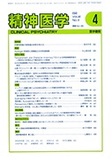Japanese
English
- 有料閲覧
- Abstract 文献概要
- 1ページ目 Look Inside
- サイト内被引用 Cited by
【抄録】 摂食障害患者51例と健常対照群47例にTCI(Temperament and Character Inventory)を施行し,下位診断別に群間比較を行い,臨床諸因子およびEDI(Eating Disorder Inventory)との関連について検討した。摂食障害すべての群で対照群に比しSD(自己志向)尺度が有意に低かった。神経性大食症(BN)ではP(固執)が対照群に比べ有意に高かった。下位診断間の相違は,BN群でNS(新奇性追求)が神経性無食欲症制限型群より高いことのみであり,欧米の傾向との相違を認めた。共通の特徴である低SDは,EDIのいくつかの項目や衝動行為と相関し,目的志向的な問題解決能力の欠如や自己評価の低さなどが病態に中心的役割を果たしていることが推察された。これらの特徴は,疾病による抑うつや情動不安定を反映している可能性も否定できないが,病態を悪循環的に維持する上での因子を端的に反映しており,それらを定量的に評価する上でTCIが有用な指標足りうることを示唆した。今後は予後や治療反応性との関連を含めた縦断的検討が必要と考えられた。
Objective : Personality is an important factor which influences clinical manifestation and outcome in eating disorder patients. Although some studies have assessed personality traits of eating disorder patients by using temperament and character inventory (TCI : Cloninger et al.), little is known about the relationship of personality to clinical manifestation. This study evaluated dimensional personality and temperamental characteristics in patients with eating disorders in Japan and examined their association with the clinical manifestation.
Method : TCI was administered to 51 patients diagnosed with eating disorder according to DSM-IV (13 AN-restricting type, 15 AN-binge eating type, 23 BN) and 47 normal controls. Eating disorder inventory (EDI) and clinical symptoms of all the patients were investigated.
Results and Conclusions : Eating disorder patients exhibited significantly lower self directedness (SD) scores compared to healthy controls. SD scores are related to introceptive awareness, ineffectiveness and interpersonal distrust on the EDI scale, and existence of impulsive behaviors. Past history of major depressive disorder and psychiatric family history was related to the cooperativeness (C) dimensions. We concluded that self-determination and the ability of an individual to control, regulate and adapt behavior to fit the situation in accordance with individually chosen goals and values play an important role on the psychopathology of eating disorders. But these results may reflect the depressive symptoms or mood instabilities in patients. Further research concerning treatment response is needed.

Copyright © 2002, Igaku-Shoin Ltd. All rights reserved.


